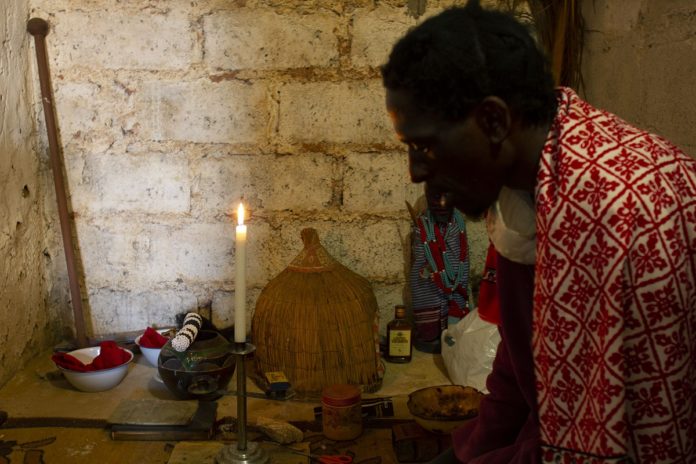“Many doctors and pharmaceutical firms say no, but they surely can help”. The herbs used by the ancient Khoikhoi people of the Kgalagadi include Artemisia afra (umhlonyane in isiZulu), wild dagga and many more.
“When the pandemic arrived, we consulted among healers and we prayed to our ancestors,” explains Sheila (62), a sangoma based in Alexandra, Johannesburg. She and other protégées of the non-profit organization Letlhabile help their clients with a mixture of local herbs used against the certain ailments the township.
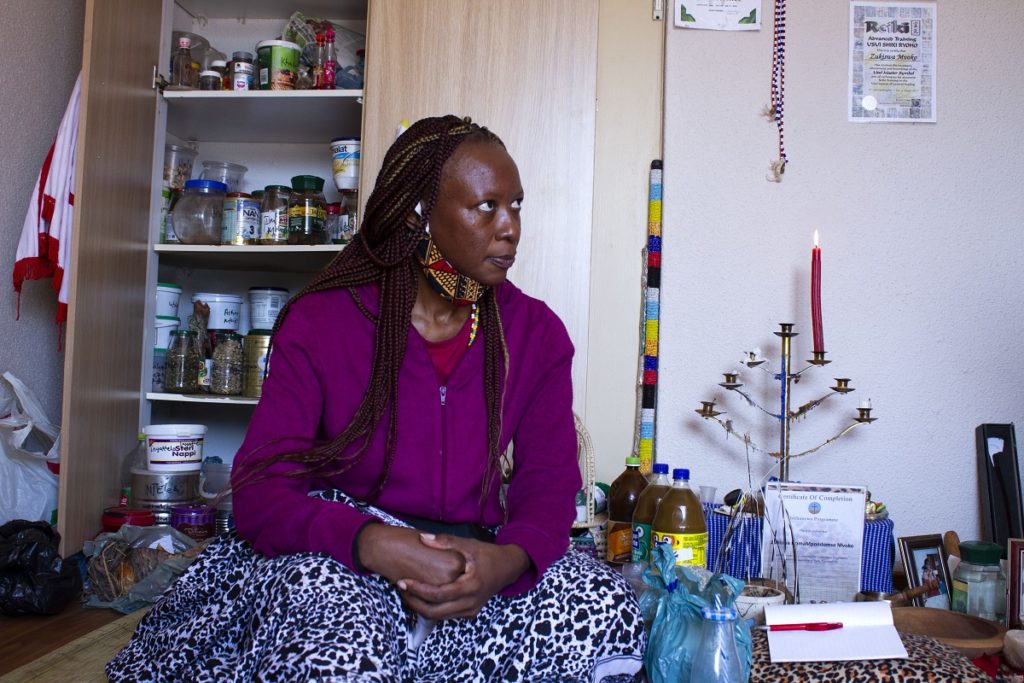
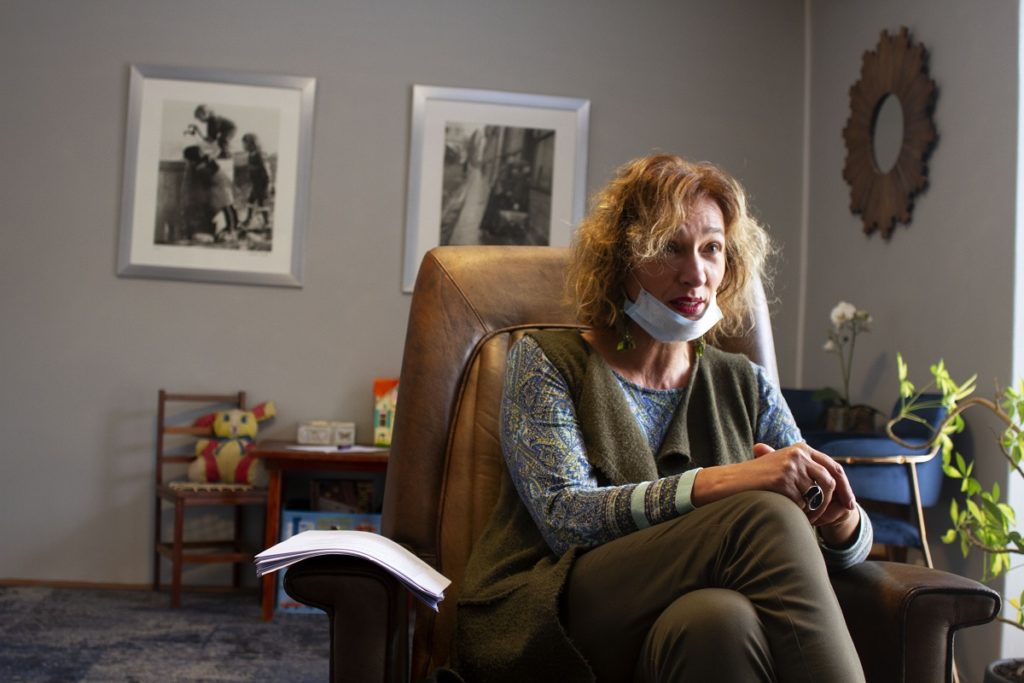
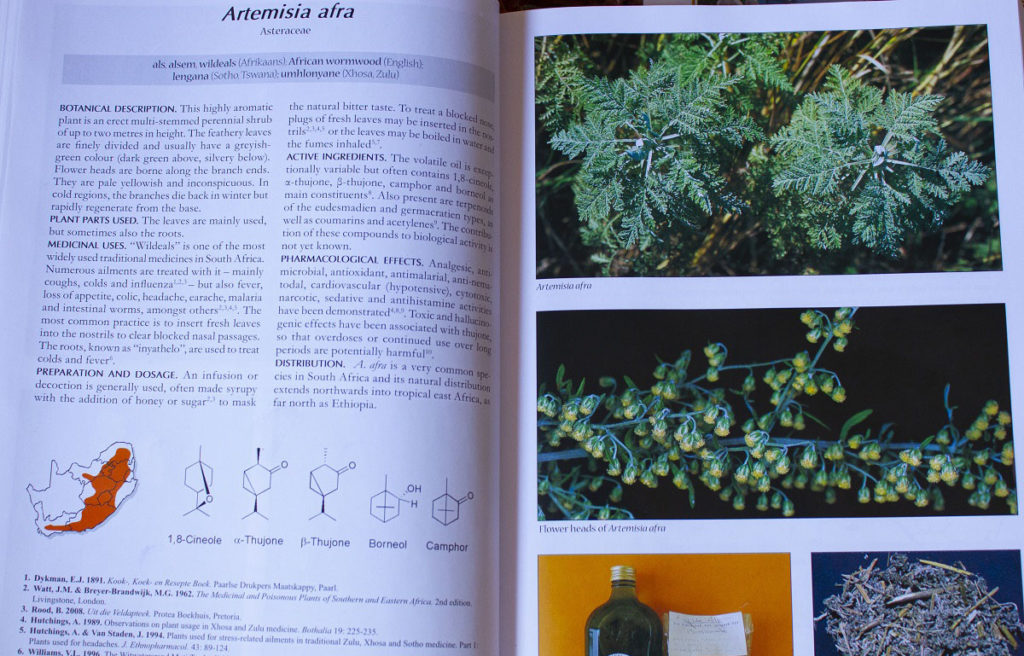
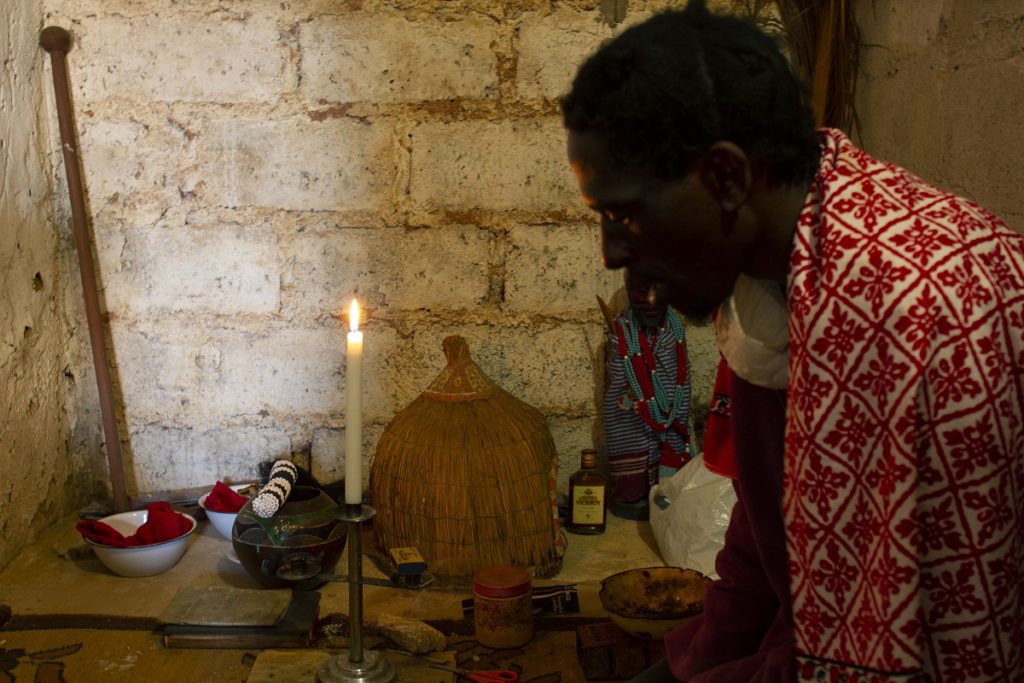
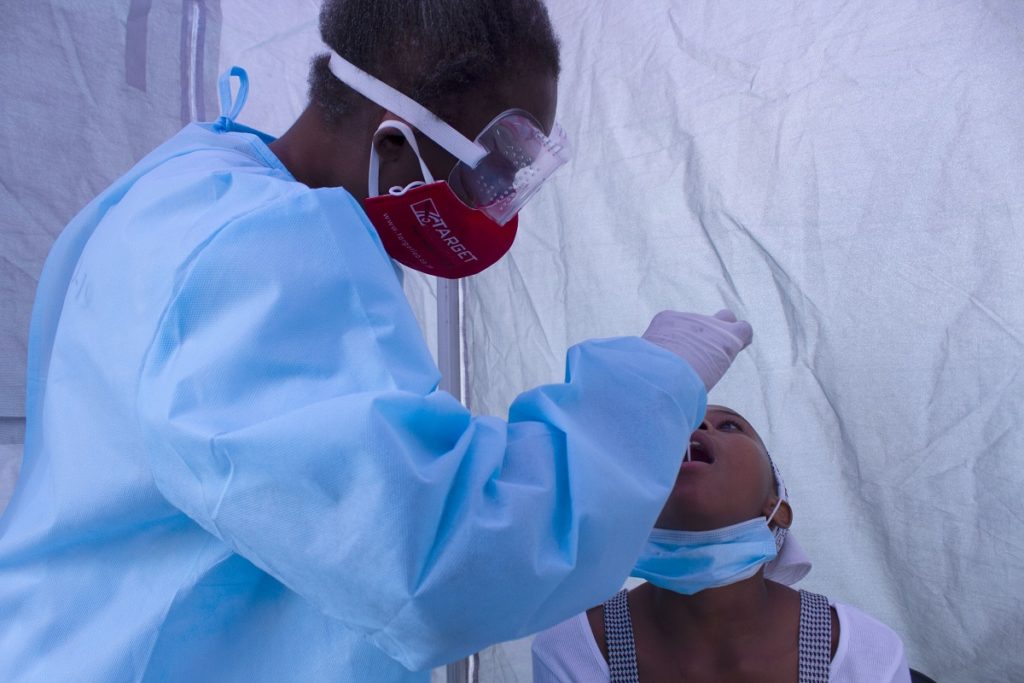
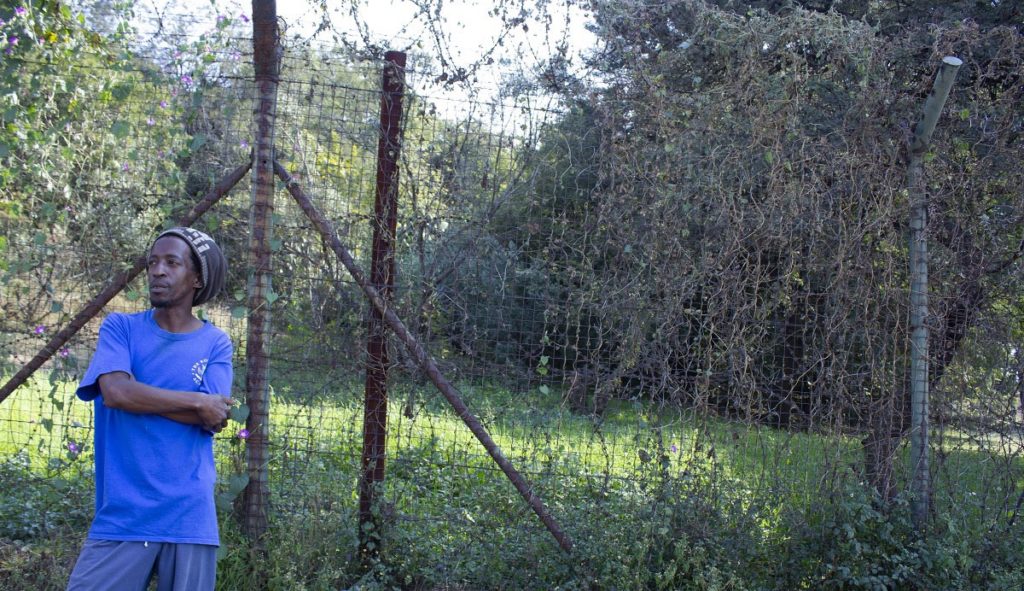
Traditional medicine is not only about healing: “Southern African medicine is holistic and focuses on the patient more than the disease”, adds psychologist Psychologist Zana Marovic. “For example, we cannot ignore how the lockdown is affecting our immune system or our anxiety levels.”
The views expressed here are the author’s personal opinion and do necessarily reflect the editorial policy of The Daily Vox.
Alessandro Parodi
Photos by Manash Das
Alessandro is a reporter with a passion for cultural studies and urban ethnography. He traveled across Europe, Asia and Africa driven by the interest in religious beliefs and cultural practices. He lives in Johannesburg, South Africa since 2012. His professional interest spans from politics to culture, travel and religions.
Manash Das is a freelance photojournalist based in Johannesburg. His work mainly focuses on humanitarian issues, conflicts and daily life. His work explores issues of Human rights, identity, and freelances for international & National publications and a regular contributor of Zuma Press.
Featured image provided by authors

